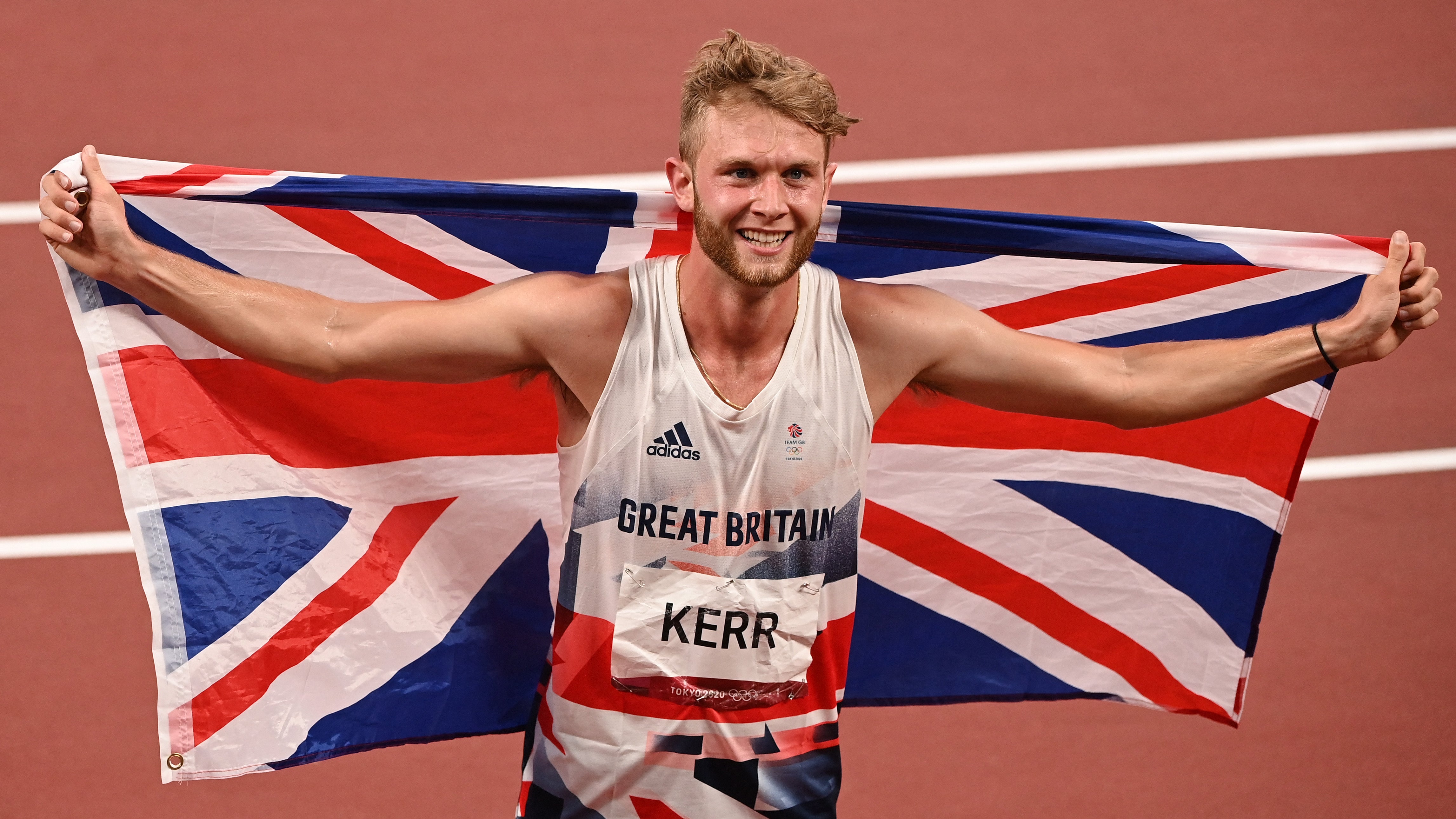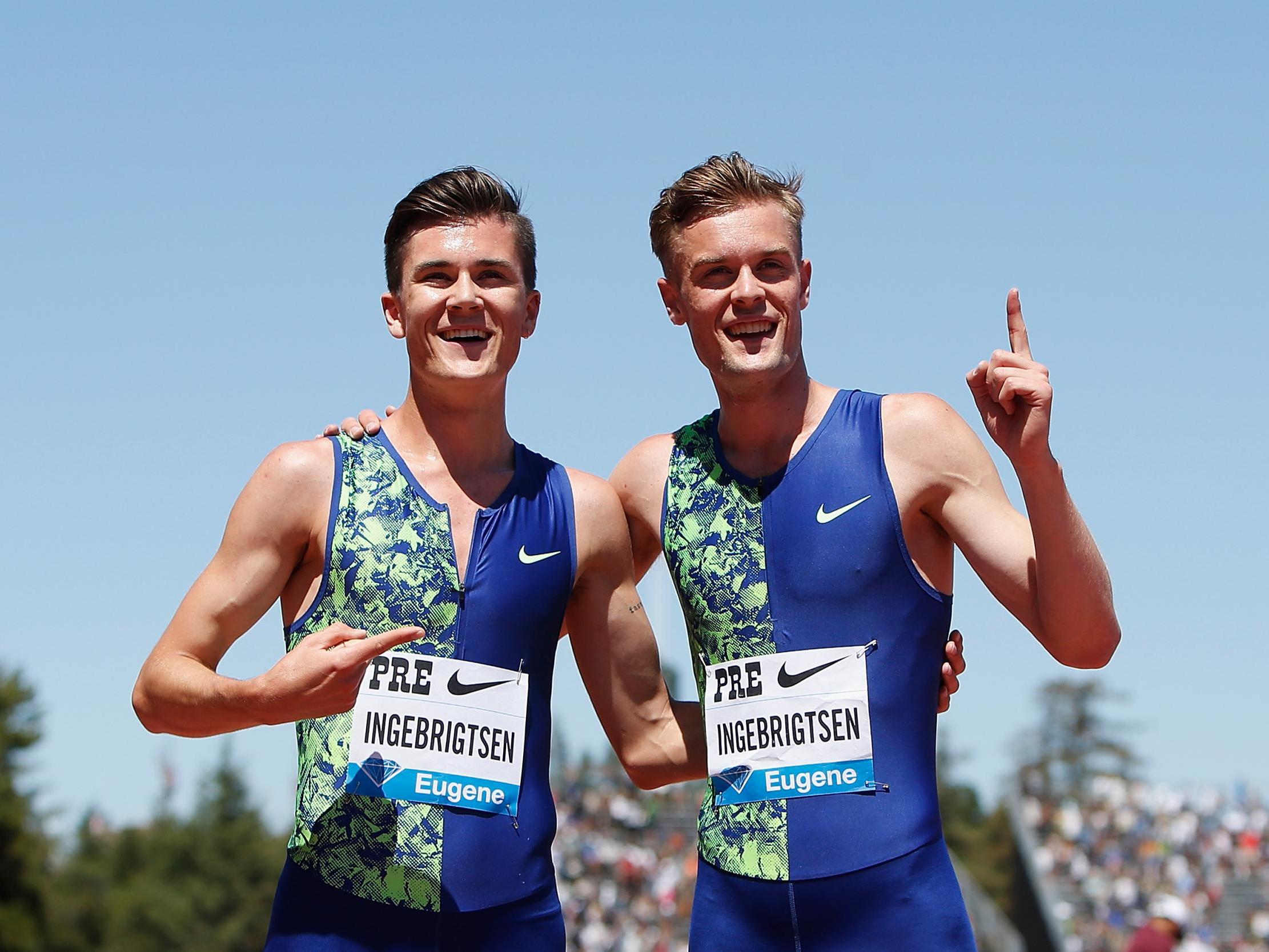
A minute or so after winning an Olympic 1500m final, Jakob Ingebrigtsen was still running. It is all he’s ever known, growing up under his father’s extreme training regime along with his six siblings, a unique physiological experiment which reached its conclusion in Tokyo with dominant gold and an Olympic record of 3min 28.32sec.
The 20-year-old Norwegian has spent a decade preparing for this moment, and he delivered on his prodigious talent with a flourish, powering around world champion Timothy Cheruiyot on the final bend before bounding on to his victory lap like he could run another 1500. Cheruiyot held on for silver in 3:29.01 and Britain’s Josh Kerr took a brilliant bronze in 3:29.05.
It is 33 years since Britain last won a men’s Olympic 1500m medal; the 23-year-old Scot has done things his own way, basing himself in America working with the Seattle-based Brooks Beasts project. In May he ran a competitive 800m and 5k “to have both ends covered” before focusing on 1500m and altitude training. He said his life was geared towards running a personal best sub-3:30 in the Olympic final – in the end he almost broke 3:29.
“I had this weird confidence in myself,” said Kerr. “Some people might call it cockiness, but when you put the work in and when you’re surrounded by my team – you can’t not feel confident every step of the way. My US visa says I’m an entertainer, so I feel I just need to live up to that, to be honest.”
Ingebrigtsen ran a hard first 400m in 56.2sec, before Cheruiyot took over and kept the pace high. Britain’s Jake Wightman was one of those who began to slide backwards as the pace intensified further and a strong Kerr passed his teammate at the bell as the pack stretched.
But Ingebrigtsen always looked in control, with the air of a man who could choose his moment. He did it with 150m to go and then stretched away, while behind him Kerr passed Kenya’s Abel Kipsang and would have hunted down Cheruiyot’s silver medal too had the road been a couple of metres longer.

The Ingebrigtsen story is a remarkable one. He is lillebror, the little brother who followed in the footsteps of older siblings Henrik and Filip under the unique methods of their father Gjert, who sees athletics as war and has little time for emotion.
Gjert and wife Tone have six boys and one girl, and some of them understandably grew sick of their dad’s demands, which included getting up in the freezing cold of Norwegian winter to go interval training as a family while Gjert held a stopwatch and barked instructions.
Oldest brother Henrik was Jakob’s idol growing up. Henrik won European titles and Jakob matched that two years ago as an 18-year-old, but this was the family’s first global title and vindication, perhaps, of Gjert’s extreme methods. How many other finalists were on a professional training programme aged 10?
One advantage over his big brothers is that they were still playing football and racing on cross-country skis as teens; Jakob just ran, and gradually he began to catch them up and overtake. Gjert is still Jakob’s coach and his brothers deserve a portion of credit too. Injuries prevented Henrik from competing here while Filip lost in the heats, but they were with Jakob helping him prepare, as they have been all his life.

In Jakob they have created the complete 1500m runner, with more leg speed than most of his Kenyan and Ethiopian rivals but with a CV that boasts 5k victories too, including a storming Diamond League win in Florence this year which caught the eye and showcased his strength of endurance.
There is a fascinating Team Ingebrigtsen documentary, filmed a few years ago now, which reveals a family bound by sport, competitiveness and a particular kind of Scandinavian love too. It contains a clip where a young Jakob is asked about his ambitions: his greatest goal is to be better than Henrik. “I think when I’m about 20 I will beat him,” he says with a grin. He has done that plenty of times over the past few years, proving himself as the fastest man in the Ingebrigtsen household. Now he’s beaten the world.







